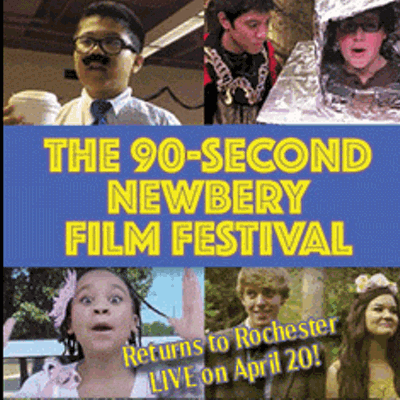[
{
"name": "500x250 Ad",
"insertPoint": "5",
"component": "15667920",
"parentWrapperClass": "",
"requiredCountToDisplay": "1"
}
]
We won't be able to provide a quality education unless we take a hard look at the complexity of the problem.
Over several weeks in May, my column focused on the crisis in Rochester's schools – what I believe has caused it and what I think we ought to do about it.
A number of readers responded with their own thoughts, creating an important dialogue on what I believe is the most important issue facing the Greater Rochester community. Their comments have touched on the role of "culture" and poverty, the influence of unions, the role of volunteers, and their own experience in Rochester classrooms.
This is a discussion taking place in urban school districts throughout the nation – because these district have two crucial things in common: tragically low student achievement and a tragically high level of concentrated poverty. It's a valuable discussion, one that ought to continue, and ought to be broadened. Providing urban students with a quality education is vital, for the students, their cities, and the future of their region. And we won't be able to do that unless we take a hard look at the complexity of the problem and deal with all of its contributing factors.
I'm turning over my column space this week to a selection of those comments, beginning with a letter from someone with firsthand experience in city classrooms: a retired teacher. Next week, I'll wrap up this expanded series with a few comments of my own.
I taught in the Rochester school district for 33 years. Since then, I have volunteered by doing read-alouds and history presentations at my former school. I have tried to be a good representative of urban teachers and have praised them and defended them. But I'm thinking about giving up.
Why? Because the people who have any realistic chance of turning urban education around are so stupid or blind that things keep getting worse. Governors, education commissioners, politicians – even the president has it wrong. All it would take is for them to spend a week in an urban school to see what all urban teachers know: It's not the teachers, the programs, the curricula, or how many times we test the students. It's the poverty, the homes, and the neighborhoods that these kids go home to every night.
Many come to school angry, hungry, and scared, with little home-taught basic knowledge or nurturing. They don't know common things suburban kids know. Most are not read to when they are little and are not taken places that would expand their knowledge.
They do know things at young ages that suburban kids don't know, however. They know that you survive by being tough and fighting if you have to. They know to hit the floor if you hear gunshots. They know that only the strong survive.
This year my volunteering has been done in a fourth grade. I read books and then attempt to have the children discuss the themes and write about them. Here's how that has gone:
The regular teacher usually has to remove a couple of students who are so angry about previous issues that they will not allow others to listen. A couple more sleep through the session. A few are routinely not in school. Seven or eight of the 20 to 25 students do pay attention and respond.
After the first book I read, I gave the students instructions on how to write a response. The next time I came, seven kids had bothered to do the assignment. This is the norm in urban classes, not the exception.
In a primary class, the teacher has a parent conference with a mom who is 24 and has five children. They are sometimes homeless. The teacher says that the child is angry. A boy comes to school every day smelling of urine. Child Protective Services goes to the home and finds 10 pit bulls. A mother comes to school "in her fighting clothes" to "rip the teacher's hair out."
Every urban teacher can tell stories like these. They can also tell of bringing kids food and buying clothes with their own money. They can tell of kids who beg them at the end of the day: "Please don't make me go home."
What is the political response to all this? "Why are the schools failing the children? We need more evaluation of the teachers. Test the children more."
There is a simple reason why politicians do this: it's easy. It's not easy to attack the issue of poverty.
Poverty, crime, teenage pregnancy, ignorance, and hopelessness are getting worse, despite years of so-called civil rights improvement and even electing an African-American president. Until someone in charge slays that many-headed monster, urban schools where those children of poverty grow up are going to continue to struggle and fail.
DAVE REILLY, FAIRPORT
Many of the ideas suggested to help city schools in the May 16 Urban Journal are good. Some are grossly impractical, such as the revisiting of a Rochester Children's Zone, which sadly failed in spite of generous state support.
But why disparage worthy efforts to provide resources and programs to help city students? When you say that efforts to provide mentors and volunteers for students, books and other resources to city students "do little except make us feel that we are doing something," you do your own passion for improving the lives of city school students a disservice.
I implore you to embrace two tracks of action. One – the track endorsed in your editorial – features the "Big Plan" efforts for change. The second – the track we support at Rochester Education Foundation – is the "it takes a village" track, which enables all of us in the community to make a difference by supporting city students today. There is room – and a need – for both.
Mentoring works. Students' lives are changed for the better through their relationships with the mentors they work for as part of our National Academy Foundation summer internships program. By working at quality employers such as ESL Federal Credit Union and the Rochester Red Wings, students acquire role models – and nearly double their chances of graduating from high school compared to the general city school population.
We also know that when a student gets the chance to play one of the more than 800 musical instruments REF and the community have given to city schools, this opens a door to a life of creativity and joy as a music-lover. Given the dearth of resources in schools, we are proud to give city students new books, which fuel innovative school activities such as book clubs and parent-student reading events – and then are sent home with students to build home libraries.
Everyone can do something to help city students – but there is no reason to stint on what we offer. Let's work on the "Big Plan" issues – and not forget that our students need all we can offer to give them the best chances at success.
PATRICIA BRAUS, ROCHESTER
Braus is executive director of the Rochester Education Foundation.
It seems your premise is that poverty is the root cause of low student achievement. How then would you rationalize the story of my father's cousin? Immigrating to this country as a boy, not speaking the language and with 50 cents in his pocket. He told of sleeping in stables next to the manure piles for warmth. Yet he died as an old man, a multi-millionaire.
Or my father, also coming to the United States as a young man without language skills. Unfortunately for me, he did not die a millionaire, but he did raise seven children. He cut our hair, made our clothes, mended our shoes. I can recall when the main course at an evening meal was stale bread sprinkled with water to soften it, drizzled with a little olive oil, some salt, and oregano. If lucky, there might be a couple of poached eggs on top. I guess you could call this poverty. But none of the seven were ever arrested or truant. All graduated from high school; two went on to college.
The story is not unique to the families from a myriad of ethnic backgrounds raised in the Fifth Ward in the 30's, 40's and 50's. Many of us became doctors, lawyers, or musicians, or made other contributions to society by being good citizens. And yes, a few went to jail. Was poverty the cause of our success or our failures? I think not.
ROGER ACETO, ROCHESTER
I consider myself a liberal person but like many, many of the middle class, I'm resistant to the notion that we should bear guilt for the appalling self-destructive culture of large portions of the inner city and that we have a major responsibility to "cure" this culture.
And like it or not, justified or not, fear (one could say healthy fear) is at the heart of much of the suburbanite's avoidance of the city. Crime and violence, the perception of crime and violence, are not exactly draws.
The burbs are not perfect. Screwed up families, questionable values abound. BUT. Huge dropout rates and accepted violence do not. Until folks perceive the city (and its schools) as safe as the burbs, I think the "distance" will remain.
My late father, greatest-generation, hard-working, two-jobs father, in the early '60s moved us from our Jefferson Avenue house to Greece. He wasn't escaping anything. The neighborhood was safe, and the schools (Catholic) were good. Gunshots never rang out, and kids graduated from high school, and many were the first in their family to attend college.
I think we sometimes blur the line that separates government leaders from everyday folk. Government can help, neighborhood groups can help, but ultimately it's up to the individual. It's up to the individual dropout-druggie-gangbanger to say, "This is stupid; school is not. It may be hard, tedious, or boring, but education can give me a better life."
RICK TADDEO, WEBSTER
I am a volunteer tutor in an elementary school on the east side of the city. Many of these students don't have many life experiences that allow them imagination, creativity, or even reading about experiences that aren't relevant to their lives.
There are very few city students attending the MAG Creative Workshop or the Eastman Community School of Music. Go into any suburban middle school and almost all the kids play a musical instrument. The city school I am in has an instrumental instructor one day a week. Scholarship money is available but family support and commitment (getting the child there regularly) is not.
RSCD needs to return to the neighborhood school for elementary school at least. If there is to be increased involvement by parents, they need to be closer to the action.
AL
Our school systems were designed in an industrial age to operate like an assembly line. Put a 5-year-old in at one end and get a high school graduate prepared for college or the trades at the other end. A standard-issue 5-year-old came well-nourished and repeatedly exposed to reading and writing. He or she had a parent who worked and another who stayed home to "raise" the children.
Parents bought flash cards. Parents hired tutors. Teachers worked after class. We believed that all children could learn but not always at the same level and in the same amount of time. Behind the facade of mass production was customization to meet the needs of individual children. When public school didn't work, parents reached out to private and parochial schools. We did whatever worked.
Now we have school systems based on the belief that all children can learn the same curriculum, in the same amount of time, and at the same level. We ignore that not all children have high-quality nutrition, stimulating homes, and extensive learning opportunities prior to entering school.
Bottom line, although it is difficult to accept and even more difficult to admit, children in the United States do not have equal opportunities to succeed.
What does work is changing the culture of one school at a time.
In our attempts to fix everything, nothing gets fixed. Follow the data. Find the schools that do it right. Learn from what works. And never underestimate the power of a principal with strong leadership skills and a vision for excellence.
MICHAEL R. PERLSON, PH.D
A significant number of the children who are failing now were not exactly succeeding in the '50s, '60s or '70s. The "Good Ol' Days" weren't. We segregated out special ed kids, and had a few other less-than-Regents options for students who did not reach the Regents standard. We also had employment opportunities at a living wage for those without diplomas.
The best social programs for the lower class are jobs at living wages. Want kids to stay off the streets and off drugs? Give them a reason. Want parents home with their kids to help with schoolwork, or just growing up? Give them the means.
Until Wegmans, McDonald's, and Walmart start paying $12 an hour (or until we manage to get the tax burden to the point that we can attract manufacturing), school achievement will remain relatively stagnant.
YUGOBOY
Latest in Urban Journal
More by Mary Anna Towler
-

Police reform: advocates on what should come next
Oct 22, 2019 -

Court clears the way for Police Accountability referendum
Oct 17, 2019 -

Dade outlines initial actions on district deficit
Oct 9, 2019 - More »





